2025 Taipei Tech Launches Taiwan-Japan Bachelor's Program to Bridge the Gap Between Academia and Industry
The global semiconductor market continues to grow, with projections estimating that its value will reach USD 1 trillion by 2030. To meet the increasing demand for skilled professionals, Taipei Tech (National Taipei University of Technology) will launch the "Bachelor’s Program in Semiconductor Process and Equipment" in the 114th academic year. This program will enroll both Taiwanese and Japanese students, offering comprehensive professional education while integrating industry training, creating a new model for cultivating semiconductor talent.
Hands-on Training for Future Semiconductor Experts
At Taipei Tech’s Precision Analysis and Materials Research Center, students are seen skillfully operating field-emission scanning electron microscopes, thin-film X-ray diffraction analyzers, and chemical analysis electron spectrometers—essential equipment in the semiconductor manufacturing industry. These advanced tools play a crucial role in the semiconductor production chain, and students trained in using them are highly sought after within Taiwan’s extensive semiconductor ecosystem.
According to the Industrial Technology Research Institute (ITRI), Taiwan’s semiconductor industry output is expected to surpass NT$5 trillion in 2024, marking a 22% increase from the previous year. By the following year, the industry’s output is projected to reach NT$6 trillion, with an annual growth rate of 16.5%.
High Market Demand, Insufficient Talent Supply
Taiwan is undoubtedly a key player in the global semiconductor industry, and the government has been actively collaborating with enterprises to establish semiconductor colleges at major universities to cultivate industry talent. However, due to the rapid development of semiconductor-driven applications such as electric and autonomous vehicles and the rising AI wave, along with the growing emphasis on semiconductor supply chains in the U.S., Japan, and Europe, the demand for semiconductor professionals still outpaces supply. "The current talent supply ratio is below 0.5, meaning that for every two job openings, only one person applies. This shortage is particularly severe for high-level technical personnel," said Taipei Tech Vice President Shih-Hsuan Yang.
To address this imbalance, Taipei Tech, with the support of semiconductor enterprises, is introducing the "Bachelor’s Program in Semiconductor Process and Equipment" in the 114th academic year. The program plans to enroll 40 Taiwanese students and 30 Japanese students.
A Long History of Semiconductor Education at Taipei Tech
Taipei Tech’s decision to establish this program is based on its longstanding commitment to semiconductor education. As early as 1998, the university introduced a semiconductor technology program. In 2020, Taipei Tech partnered with TSMC to launch the "Semiconductor Equipment Engineering Industry Program." Later, in 2022, the university established the Institute of Innovative and Advanced Technology and, in the 113th academic year, introduced the "Master’s Program in Semiconductor Technology," making it the first technological university in Taiwan to establish a semiconductor college.
Yang emphasized that Taipei Tech has long been strong in electromechanical engineering and refrigeration and air conditioning education, producing many equipment engineers for the industry. Recognizing that semiconductor-related fields are expanding beyond traditional electromechanical and materials expertise to include AI-driven smart manufacturing and equipment calibration, Taipei Tech designed this new program to provide students with a well-rounded professional and practical education. With TSMC’s support, the program will feature industry experts co-teaching semiconductor courses alongside faculty members. Students will also undergo hands-on training at TSMC’s new employee training center.
Industry Collaboration for a Global Talent Pipeline
For domestic students, Taipei Tech allows first-year students from any department to apply for a transfer into the program in their second year. Yang advises interested students, regardless of their academic background, to take fundamental courses in physics, chemistry, and calculus in their first year.
The program’s inclusion of Japanese students is a groundbreaking initiative. "This is Taiwan’s first international semiconductor program," Yang explained. The four-year education in Taiwan will facilitate professional exchanges between Taiwanese and Japanese students and promote corporate cultural integration. Taiwan’s dense semiconductor ecosystem and rich academic-industry collaboration provide students with invaluable resources, preparing them to become globally competitive semiconductor professionals.
Since Japanese students typically decide on their university plans during their second year of high school, Yang, along with Taipei Tech’s semiconductor program leaders, personally visited Japanese high schools last October to introduce the program to students and parents. Taiwanese semiconductor HR representatives also participated online to explain career prospects.
The program will be conducted entirely in English, with Taipei Tech offering full tuition subsidies. To help Japanese students transition smoothly, the university will provide free Chinese language and foundational courses from April to August 2025, before the official start of the program. Understanding concerns about adjusting to life in Taiwan, Taipei Tech has also arranged for dedicated advisors and administrative staff proficient in Japanese to assist students with daily affairs.
Currently, over 20 Japanese students from Fukuoka, Tokyo, Miyazaki, and Okinawa have met the qualifications in the first phase of the application process. Taipei Tech will now proceed with confirming their enrollment intentions and invite successful candidates and their parents to visit the campus.
Guaranteed Industry Opportunities for Graduates
Students in this program will have the opportunity to apply for internships at TSMC. Those who complete the program and earn a certificate will receive a guaranteed interview with TSMC. Additionally, students with an average program grade of 80 or above will be eligible for extra academic awards from TSMC.
Yang believes that Taiwan produces 90% of the world’s most advanced chips, which are widely used in consumer electronics, telecommunications, and the automotive industry. Semiconductor professionals in Taiwan are constantly connected to the global market. By enrolling both local and international students, Taipei Tech’s semiconductor technology master’s program fosters cross-cultural exchanges and prepares students for international careers. "This program ensures that students gain global perspectives and international experience without having to study abroad. We are bringing opportunities directly to them. This is the beginning of a transformation!" Yang concluded.
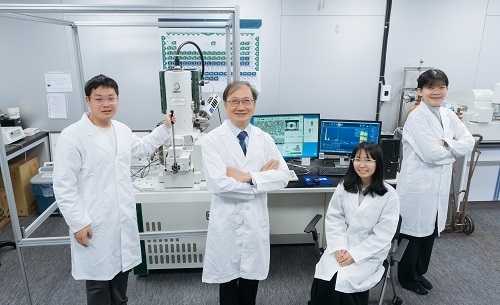
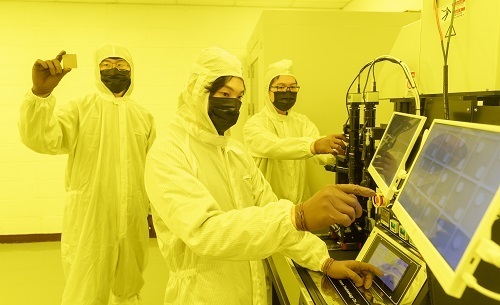
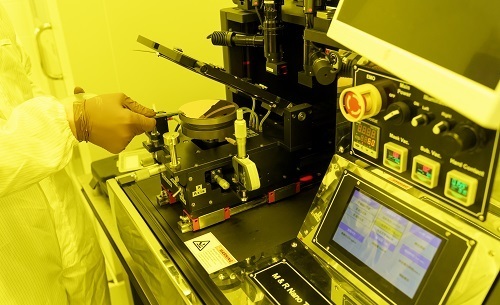
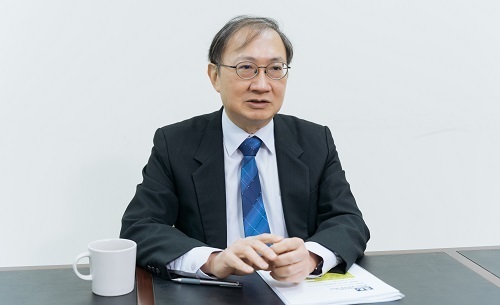
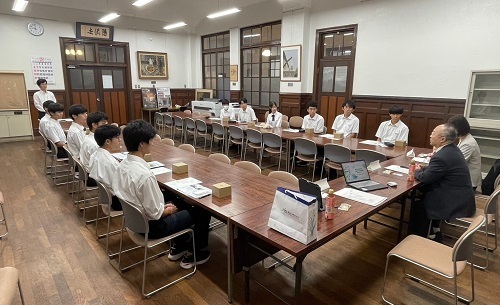
Chinese Resource:https://www.gvm.com.tw/article/118666
